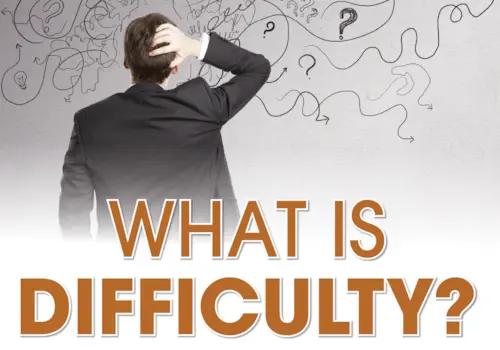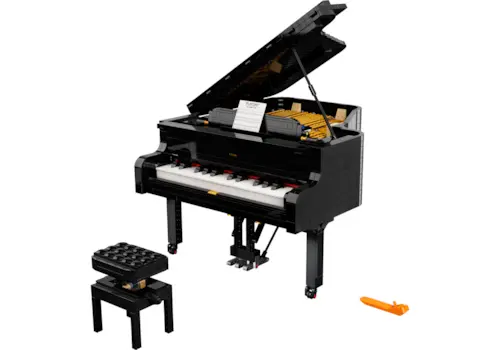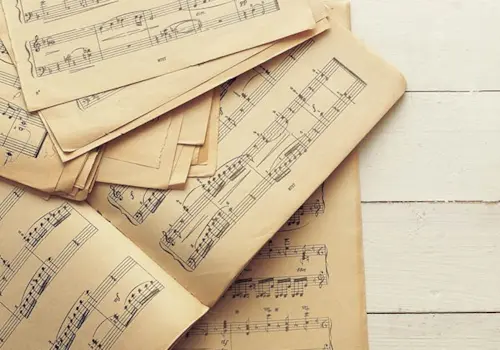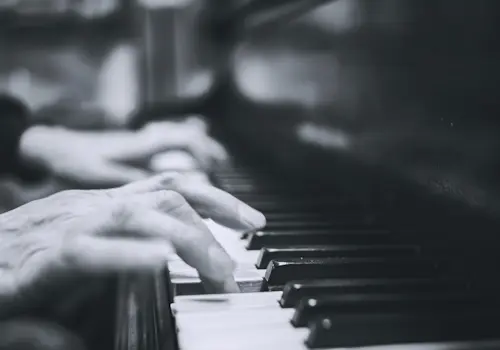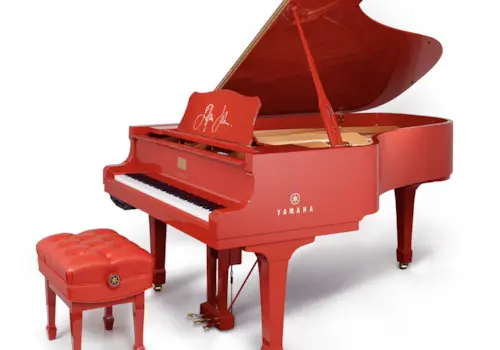11 July 2025
|
If you’ve hit a wall in your piano progress, you’re not alone. Nearly every pianist, whether beginner or advanced, faces moments of frustration, boredom, or burnout. But feeling stuck doesn’t mean you’re a failure that should just give up - it just means it’s time to shift gears.
Here are the most common reasons pianists feel stuck - and, more importantly, how to move forward and continue enjoying your piano playing again.
1. Reignite your motivation
Remember why you play
Why did you start playing in the first place? Maybe it was the joy of music, the challenge, or the dream of playing your favourite composer. Reconnecting with your original motivation can spark new energy and purpose.
Play the music that makes you happy
We often get stuck trying to conquer music that we think we should play, instead of what we actually want to play. Give yourself permission to learn music that excites you - even if it’s simplified. Passion always beats pressure.
Let go of pieces (for now)
Not every piece needs to be conquered immediately. If something is leaving you frustrated, set it aside. You’re more likely to succeed after improving your skills elsewhere.
Make playing the piano fun again
Personalise your piano. Give it a name, light a candle while you play, or set up themed practice days. Injecting playfulness into your practice can remove pressure and make you look forward to sitting down at the keys.
2. Work on your technique
Break your practising into smaller, manageable chunks
Is there one section of a piece that keeps tripping you up? Zoom in. Practise just that bar, that phrase, or even those two tricky notes. Precision practice leads to progress.
Start from the end
If you always begin a piece from bar one, you might only know the opening section really well. Try working backward - start from the final phrase and work your way to the beginning. This will help you to build confidence across the entire piece – not just the start.
Simplify as much as you need (there’s no shame in this)
There's absolutely no shame in finding an easier version of a piece or simplifying the one you're working on. You’re still learning, still playing - and still growing. Sometimes playing a piece that is slightly easier will reignite your confidence and passion to keep going. Once you feel ready, and calm again, try a harder piece but as soon as you start feeling frustrated – take the step back and practise the pieces you find easier for as long as you need.
Experiment with new styles
Switch things up to challenge your brain and fingers:
-
Try playing a piece in a different key.
-
Play backwards, from the last note to the first.
-
Focus on the left hand only.
-
Turn your music upside down - seriously! (It’s a fun sight-reading exercise.)
Return to the fundamentals
When in doubt, go back to basics. Scales, arpeggios, and sight-reading aren’t glamorous - but they’re game-changers. Solid technique makes everything easier.
Ask for feedback
Sometimes you just need an outside ear. Ask a teacher or an experienced pianist to listen to you play. A small suggestion from someone else can often unlock big improvements.
3. Address any underlying issues
Perfectionism can be paralysing
If you’re constantly trying to “fix” every mistake before moving on, you may be stuck in a perfectionist loop. Give yourself space to explore and experiment - not everything has to be polished right away.
Boredom means it’s time for a new challenge
If practice feels like a chore, introduce something new - a piece that’s slightly above your current level, or a different genre like jazz or film music.
Keep consistent so you don’t lose momentum
If you’re practising once a week (or less), progress will be slow - and that’s discouraging. Aim for short, regular sessions. Even 10 focused minutes a day is better than nothing.
Read our blog on our 10 tips for practising the piano when you only have 10 minutes for even more tips on how to improve your practising.
Fear of mistakes will ultimately freeze your progress
Mistakes are part of the process. Instead of avoiding them, practise recovering from them. The ability to keep going after a slip-up is one of the most valuable piano skills you can learn.
Always remember you’re not alone
Feeling stuck doesn’t mean you’re not talented. It means you’re in the messy middle - a necessary part of mastering any instrument. The good news? You can move through it.
So if you're stuck right now, take a breath, try one of the suggestions above, and remember: every pianist you admire has been exactly where you are.
And they kept going.
So can you.
Ready to keep going? Let us support you. Explore the Pianist Prime Membership for access to expert-led video lessons, digital sheet music, masterclasses, and bonus practice resources - designed to get you unstuck and playing your best.

